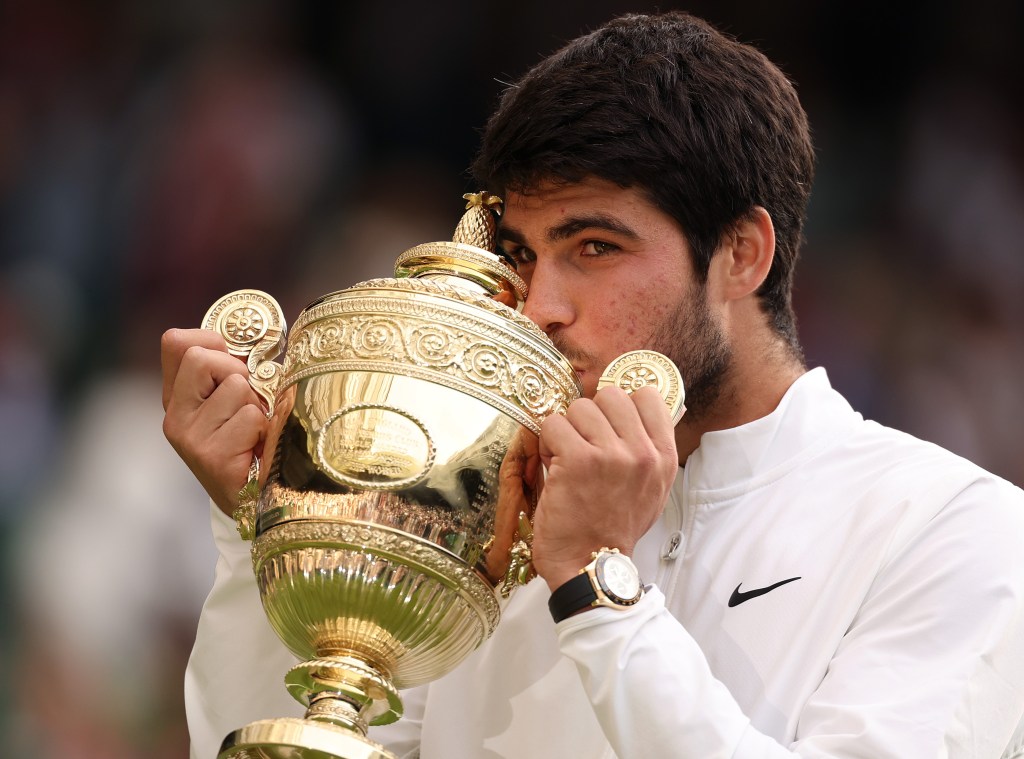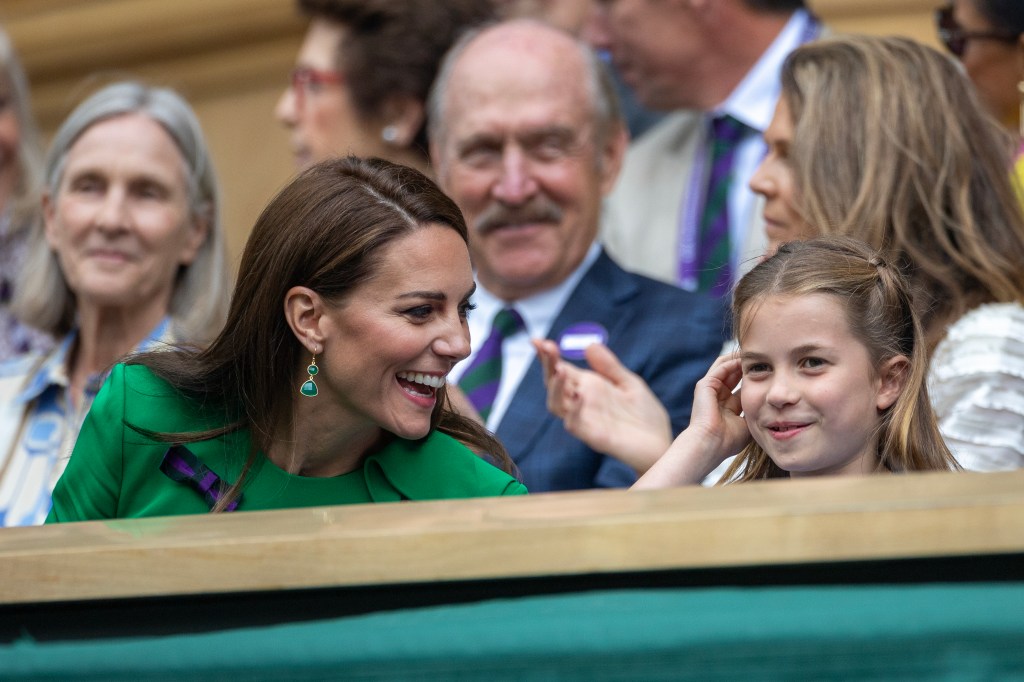Up-and-coming Spanish tennis player Carlos Alcaraz defeated Serbian tennis great Novak Djokovic in the Wimbledon men’s singles final Sunday, thwarting Djokovic’s bid to secure a 24th Grand Slam title and fifth Wimbledon win in a row.

Key facts
Alcaraz, 20, beat Djokovic, 36, a dominant force in tennis, in five sets in the final round of Wimbledon.
The Spaniard won 1-6, 7-6, 6-1, 3-6, 6-4.
Sunday’s win marks Alcaraz’s second Grand Slam title, after winning the U.S. Open last year, and his first Wimbledon title.
Big number
$US27.1 million.
That’s how much Djokovic made from August 2021 to August 2022, including $US7.1 million in on-court earnings and $US20 million in sponsorships and other off-court deals, according to Forbes’ calculations.
We estimate he was the world’s fifth-highest paid tennis star over that period, behind Roger Federer ($90 million), Naomi Osaka ($56.2 million), Serena Williams ($35.1 million) and Rafael Nadal ($31.4 million). Djokovic’s sponsors include Lacoste, Hublot and Asics.
Surprising fact
Despite his young age, Alcaraz is not the youngest person to win Wimbledon.
German tennis star Boris Beck won the men’s singles competition as a 17-year-old in 1985. And Swiss tennis player Martina Hingis is the youngest person ever to win Wimbledon when she took the title in 1997 at 16 years and three months old.
Key background
Earlier this year, Djokovic won the French Open, marking his 23rd Grand Slam title—surpassing the record he previously shared with longtime rival Nadal. For years, the Serbian tennis star fought alongside Federer and Nadal and at one point all three tied in Grand Slam titles.
Djokovic also missed several competitions throughout the pandemic and was mired in controversy after he announced he was not vaccinated against the coronavirus.
The decision not to be vaccinated led the Serbian tennis star to be deported from Australia ahead of the Australian Open last year due to the country’s strict vaccines requirements for foreign travelers. He also skipped the U.S. Open due to the United States’ vaccine rules.
During that time, Djokovic advocated for tournaments to change their requirements, but he also made clear he was willing to forego potential future tournament wins, describing it as “the price I’m willing to pay,” during a BBC interview.

Tangent
Djokovic has also made headlines for his use of a “nanotechnology” patch that he describes as the “biggest secretary of his career,” but has been disputed by many experts who call the technology “pseudoscience.”
The small disk worn on his chest is a TaoPatch—made by Italian company Tao Technologies—that supposedly improves posture, athletic performance, movement stamina, balance and recovery.
The company also claims the patch can help with diseases like multiple sclerosis and Parkinson’s.
Djokovic previously claimed the TaoPatch was what was behind his victories on the court. But some doctors have questioned the technology.
Hariet Hall, a former family physician and pseudoscience debunker, examined the mechanics of the patch and described the claims as “pure pseudoscientific gibberish.”
This article was first published on forbes.com and all figures are in USD.


